

Home
About Us
Allotments
Garden Equipment
Seed Suppliers
Manure Problems
Children's Pages
GLA Blog
Weather Blog
School Veg Patch
Useful Links
Ponds and Water Features
** This website is not a shop and doesn’t sell anything! **
Be aware that any external links may contain cookies and you should refer to the particular website's cookie policy
We wouldn’t be without our garden pond - it adds another dimension and interest to our garden.
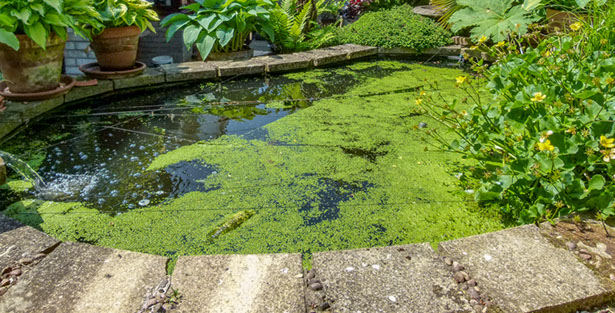
Even though it isn’t technically a wildlife pond it certainly brings in the wildlife. Each year we have a muddle of male frogs vying for possession of the females (read more here). I’m not sure how much of the frog spawn actually survives to produce an adult frog as our fish consider frog spawn to be a delicacy.
Then in winter as water freezes and is in short supply the birds descend to take advantage of any remaining patches of water. Some of the visiting species are rarely seen in the garden at other times (see my blog post here). It’s difficult to keep our bird baths ice free but there is usually at least a water hole even in the coldest of winters. We have even had visiting damselflies.
The sound of running water is also welcome and even detracts from noise from nearby busy roads. The water produces interesting reflections.
Our pond is basically a large hole dug in the ground and lined with a pond liner. The pond is surrounded by a low wall which was intended to prevent grass clippings and any lawn fertilisers getting into the water. We were also informed that this would prevent herons from being a problem as they like to wade into the water. The wall has certainly been successful in achieving the first aim but unfortunately it doesn’t seem to deter herons! A patio area is build almost to the level of the pond on one side so the frogs can gain access and they manage to climb out again using the planting baskets. It is important that there are escape routes for any animals that end up in the pond.
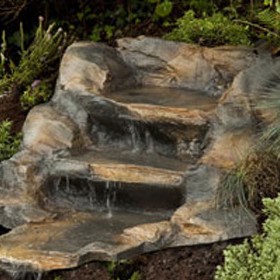
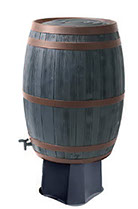 Our pond liner is made from butyl rubber which, although more expensive than the PVC option, is more durable and longer lasting. We wanted our pond to be as well made as possible as we didn’t want to have all the hard work that went into creating it to be ruined after a few years due to a rotted or perforated liner.
Our pond liner is made from butyl rubber which, although more expensive than the PVC option, is more durable and longer lasting. We wanted our pond to be as well made as possible as we didn’t want to have all the hard work that went into creating it to be ruined after a few years due to a rotted or perforated liner.
To cut down on the risk of the liner being damaged by sharp stones all liners need to be laid on a protective layer of sand or something similar to a carpet or layers of cardboard or newspaper.
If you don’t want to use a pond liner there are lots of shapes of preformed ponds available. Some raised bed systems can be adapted to use as a pond too.
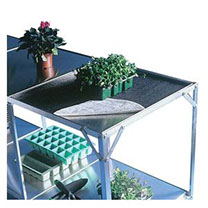
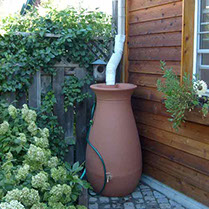
If you have fish in your pond as we do the water will need aerating and will also benefit from a filtration system. Moving water not only adds sound to your garden but also improves the quality of the water preventing it becoming stagnant.
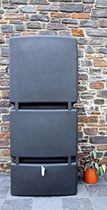
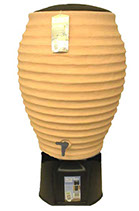
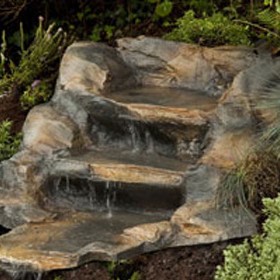
Waterfalls and fountains are great for adding oxygen and sound whereas a filtration system will remove debris and fish waste from the water and most also include an ultra violet light that will kill bacteria.
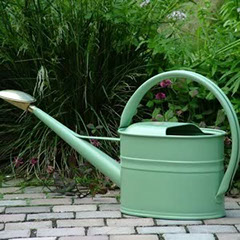
If you don’t have the space or the inclination or you have children and are afraid of the danger. A pond isn’t the only way to have water in your garden you can still have some sort of contained water or you may prefer a hidden tank of water used to create a running water feature.
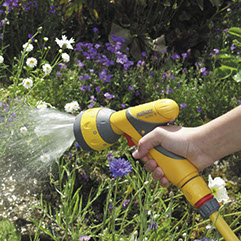
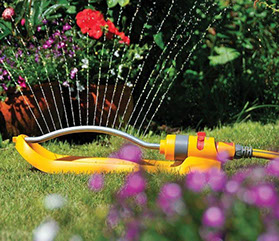
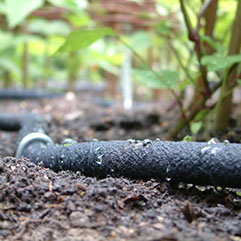
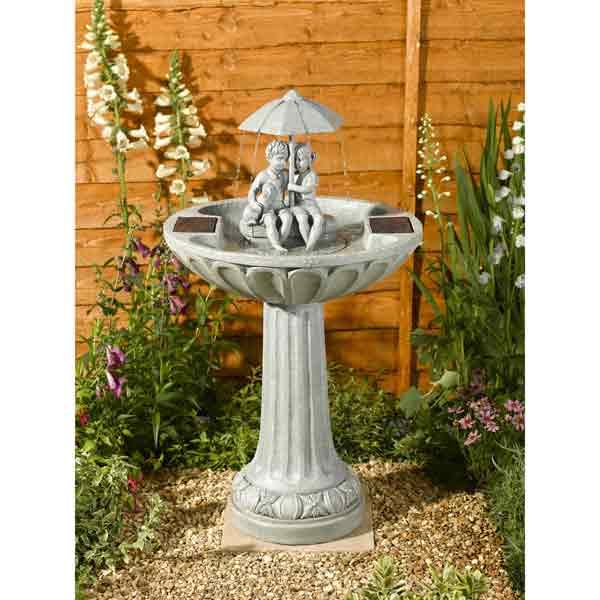
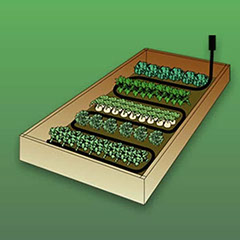
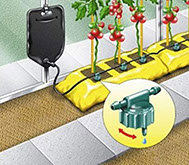
If you do decide to invest in a pond, unless you create a wildlife pond, you will also need a pump to either create a fountain or to pump water through a filtration system or up to the top of a waterfall.
If you are buying a fountain check whether the pump is provided. The size of pump required will depend on the size of your pond so either do plenty of research before you buy or seek advice.
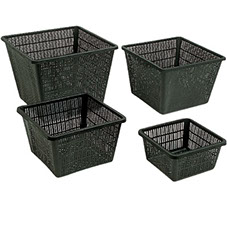
To prevent the herons stealing our fish we have used special black string which is stretched across the pond. Being black it doesn’t show up against the black pond liner. You could also place a net across the pond but we think that the string provides easier access to the pond for instance when we need to remove the pump. Also a net can be a nuisance if you wish to have water plants.
If as is likely you want to have some plants in your pond then you will need to plant in some sort of containers. Their are plenty of different shapes and sizes available. The soil used for planting shouldn't contain any fertiliser. You can buy special pond planting compost for this.
Before you put any fish in your new pond you should leave the water to 'settle' for a while and read up carefully about how to introduce fish to your pond and ho to take care of them.
Photos taken from Greeefingers and Pondkeeper.
I’ve gathered together some links from companies offering gardening products for sale. I have no connection to the suppliers and therefore cannot be held responsible for any changes in items available or any issues that may arise when making a purchase.
Some companies give me a small commission on sales that are generated from this website which helps me to maintain this and sister websites but this in no way means that I am recommending purchases from a particular company.
Our Plot at Green Lane Allotments Blog | A Gardener's Weather Diary | School Vegetable Patch Website
© Our Plot on Green Lane Allotments - Please email me if you wish to use any of this site's content